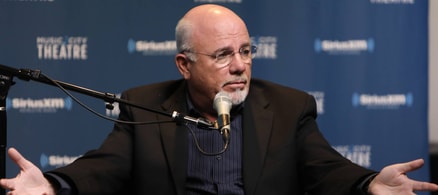Trust me, you want to get banking early

Every year, bank reps swarm my campus, setting up tents, handing out pamphlets and pushing clipboards into students’ faces. As a freshman, I strategically avoided the throngs with my eyes glued to my cellphone while I rushed to class.
I didn’t get my own credit card till second year, but since then I’ve learned that you really want to get a bank account and credit card set up as early as possible.
Why? Making purchases with a credit card will help you start building your credit score — a number that tells lenders how trustworthy you are. If you ever need a loan so you can buy a car or a home, the bank is going to check your score to see whether you’re likely to pay your bills on time.
About 15% of your score is determined by how long you’ve had credit, and 35% is based on your payment history, so the sooner you get started, the better. You can check your current credit score through a free online service like Borrowell.
At this stage, you probably want to choose a card with no annual fee. Tangerine’s World Mastercard is a good option; it records and organizes your purchases to help you budget and also gives you 2% cash back on two categories of your choice, like groceries and public transportation.
And if you don’t have a student bank account already, you should know they can save you a ton on fees. Scotiabank’s Student Banking Advantage Plan, for example, offers unlimited debit transactions and e-transfers at $0 per month.
Some banks (such as BMO and CIBC) also offer free Student Price Cards, which get you discounts and deals at participating locations. You won’t need to pay full price on a pair of jeans at American Eagle or a Whopper from Burger King.
Maximize Your Tax Refund with TurboTax Canada!
Simplify tax season with this user-friendly software. Get step-by-step guidance, maximize deductions, and file with confidence. Trusted by millions, TurboTax Canada ensures accuracy and peace of mind. Start your taxes today and get the refund you deserve
Get the tax refund you deserveYou can easily overspend on school stuff

Freshman me freaked out when she realized how expensive school supplies were going to be. Like tuition wasn’t bad enough?
As a biology and writing student, I needed textbooks, stationary, lab coats, goggles and disposable gloves. I’m pretty sure I paid over $200 for a brand-new Campbell Biology textbook and probably spent the same on two other courses that semester.
Don’t make the same mistake I did. Buy ‘em cheap, buy ‘em used.
Your university’s bookstore will probably offer used textbooks, but they tend to sell out quickly. Try looking on Indigo or Amazon, and quest around on Facebook for a community page with students selling old textbooks. E-books are typically much cheaper, as well.
Amazon Prime is free for students for the first six months, and then 50% off after your trial is over, so it’s a great way to get cheaper textbooks delivered for free. Plus, you get to watch some great shows and movies in your spare time. (The Great is excellent, by the way, would highly recommend.)
When it comes to other supplies, you might just land yourself some freebies or discounts when you sign up for clubs during Welcome Week. I’m not ashamed to admit that I gleefully collected a small discount on a lab coat when I signed up for a biology society at my school.
And if you get the chance, ask some senior students whether you really need everything the school says you do. I’m still mad that my school made us buy disposable gloves in first year, then started giving them out for free. I have a half-used box taking up room in my closet.
It sucks, but you need to budget for the basics

This is the hard one, right? It’s easier said than done to stick to a strict budget, but if you want to make any progress you need to know where your money’s going.
Start by writing down your typical monthly expenses as well as any income you’re getting. (You can use this worksheet, if you like.) Not every month is the same — I know I’m probably going to spend a heck ton of money during Christmas on gifts — but this should be your baseline.
Next, look at your “needs,” like transportation, and see where you can save. I know that if I wake up to my alarm clock at a decent hour, I’m only spending $3.20 on my bus ride. On the other hand, if I sleep in and order an Uber to get to class on time, that’ll cost me about $30.
Finally, keep an eye on the little guys. When you make a habit out of small luxuries, like that $4 boba tea from Chatime, they add up. Even one boba a week is $16 out of your bank account each month.
Campus food and drinks are hugely overpriced, but most students still buy them because it’s so convenient. I urge you to stay strong!
I made the hard choice to say goodbye to those crispy potato wedges from Tim Hortons and now prep my lunches the night before. You can also brew yourself some instant coffee and carry it to campus in a flask. It literally costs you pennies to make at home, while a Starbucks latte grande goes for $3.65.
You might find some diners or cafes near campus that offer discounts to students, but honestly, it’s better to avoid buying out as much as possible.
Grow Your Savings Effortlessly with Moka
Automate your savings with every purchase and watch your money multiply. Moka rounds up your transactions and invests the spare change. Start building wealth effortlessly today. Join thousands of Canadians embracing financial freedom with Moka
Sign up nowAnd remember, it’s OK to say no

Just one more thing before I go. While it can be tough to make a plan and stick to it, you should know that things will get even tougher once you start making new friends.
They’re going to buy new textbooks from the campus bookstore. They’re going to eat at the Pizza Pizza every day. And while COVID-19 might shut a lot of plans down for the year, that one classmate will urge you to hang out every Friday night for a few $15 cocktails.
But remember, it’s OK to say no. And it’s OK to eat your homemade sandwich while everyone in the cafeteria is buying lunch.
Don’t succumb to the pressure, save up for the parties you really care about, and you can still have that college experience, red Solo cups and all.
Sponsored
Trade Smarter, Today
With CIBC Investor's Edge, kick-start your portfolio with 100 free trades and up to $4,500 cash back.







